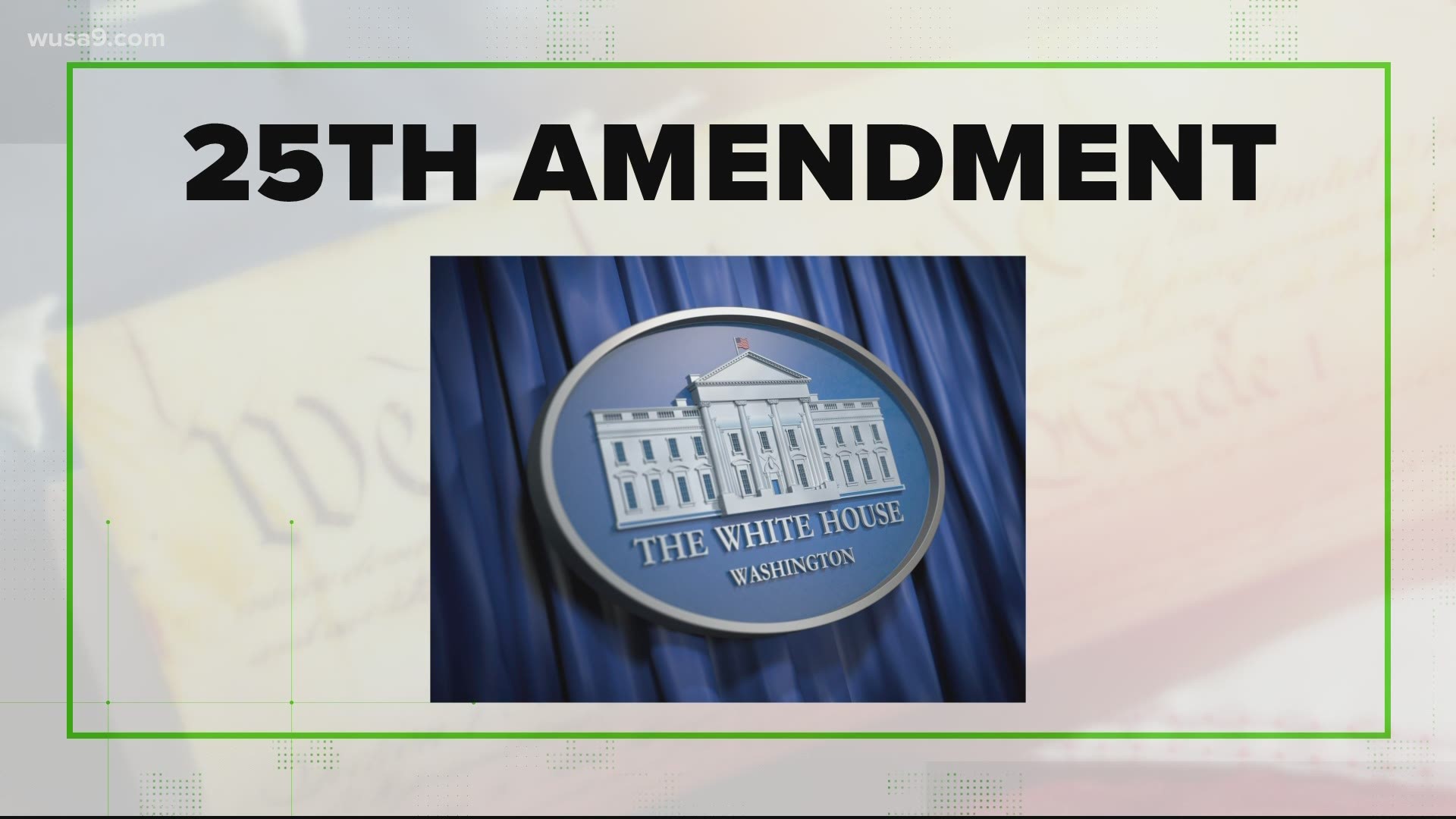WASHINGTON — Massive crowds of people pushed past security barricades and stormed the Capitol Wednesday afternoon, with several managing to breach inside the chamber while lawmakers were voting on certifying Electoral College votes.
One person was shot and killed during the swarming, as dozens of lawmakers ran for safety forcing Congress to recess.
With chaos unfolding in the District, we're Verifying: Does Congress have to meet on January 6 to certify the results, or can they wait?
QUESTION:
Do Electoral College votes have to be certified by January 6? What happens next?
ANSWER:
The date is fixed for January 6 but has been changed before. In order for the date to be changed, lawmakers must pass new legislation.
SOURCES:
- U.S. Code Title 3, Section 16
- U.S. Code Title 3, Section 17
- Congressional Research Service Report
- The United States Consitution
- Michael Thorning, Associate Director of the Bipartisan Policy Center
PROCESS:
The January 6th date has been set in the Constitution, but the date for the count has been changed several times before. The Congressional Research Service cited the 2013 count when January 6 fell on a Sunday, so the new date was pushed to January 4.
According to U.S. Code Title 3, Section 17, each objection can take up to two hours, meaning even before the events of today unfolded, it was possible for the objections to last well into the morning hours.
Under U.S. Code Title 3, Section 16, the joint session from Congress to certify votes "is to continue until the count is completed and the result announced."
The code goes on to say that recesses are also limited "if the process of counting the votes and announcing the results becomes time-consuming."
There is no mention of how to proceed in the event of an emergency like what unfolded Wednesday. Lawmakers were able to reconvene and continue the certification process Wednesday night.
Micheal Thorning, associate director for the Bipartisan Policy Center, said the Electoral Count Act requires Congress to "begin counting the electoral votes on January 6, but it need not end that day."
"The statute recognizes that this process could be lengthy and imagines the process could take in excess of five days in some cases," he continued. "The statute does not provide a deadline to complete the counting but requires that the joint session not be dissolved until then and until the results are announced. Even if the counting went beyond January 20th, when a president and vice president’s term would end, the presidential line of succession would be activated. In such a case, the Speaker of the House would likely be the first officer to become acting president until the Electoral College process is completed and a president declared."
Section 16 also governs the seating of Senators, Representatives, and officials (the Clerk of the House, the Secretary of the Senate, the Members designated as tellers, and other administrative officers of the House and Senate.)
Back on January 3, the House and Senate each passed rules that were identical to other electoral counts in the past, expecting business to go as usual.

